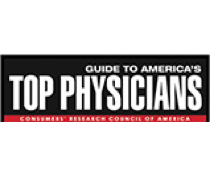Acetaminophen, commonly known as Tylenol, can save the day when you have a headache, muscle pain or a fever. But what about lower back pain?
A lot of discussion around acetaminophen’s effectiveness at relieving lower back pain has sparked over the last couple of weeks in response to a study done in Australia: over 1600 patients were chosen at random to treat their lower back pain with acetaminophen as needed, acetaminophen three times daily, or a placebo three times daily.

Over the course of the study, doctors didn’t see a strong difference in the recovery times of patients—the average amount of time it took for those on acetaminophen to feel better was 17 days, compared to 16 days by those on placebo. This is enough for some experts to deduce that our most common pain-killer is falling short for lower back pain.
While there is still room for a more accurate assessment of acetaminophen’s effectiveness, there are some proven ways to keep lower back pain at bay.
- Apply ice and heat. In the first 48 hours after injury, icing your back is the best way to reduce pain, especially if there is swelling. After that, it may feel good to switch to a heating pad or hot water bottle, but stick to what feels best.
- Regular exercise. Most think lying low is the way to recovery but inactivity is one of the worst things for back pain. Strenuous activities are not recommended, but walking and swimming will strengthen muscles and relieve pain.
- Core-strengthening activity. Your core – the muscles in your abdomen, back and shoulders – provide most of your body’s stability. A strengthened core will reduce the chance of future injuries and taking up activities like yoga or Pilates could help relieve pain.
- Quit smoking. When a smoker finally quits, he or she is sure to see a number of health-related improvements, and back pain is no exception. Nicotine causes the small blood vessels to constrict and reduces the delivery of blood to soft tissue, increasing the possibility for pain and disc degeneration.
- Change the way you sleep. A great mattress alone cannot guarantee a happy, healthy morning, but additional pillows will help keep your spine aligned while you sleep in your favorite position. Plus, a good night’s sleep could actually make you feel even better!
- Meditation. Back pain often appears in those with anxiety and depression, and meditation is one way to combat those issues. Taking even a few minutes each day to meditate will not only clear your mind but will also reduce inflammation and lower your blood pressure – reducing pain levels and giving your mind and body the break it needs to start healing.
In summary, there are many ways to tackle back pain—medication like Tylenol is only one aspect of treatment.









